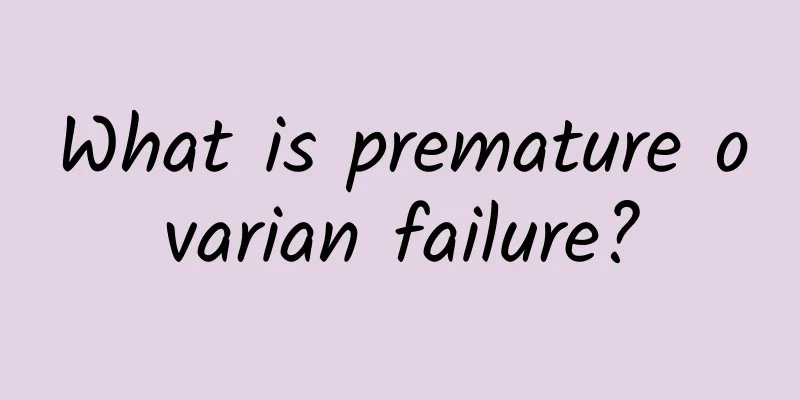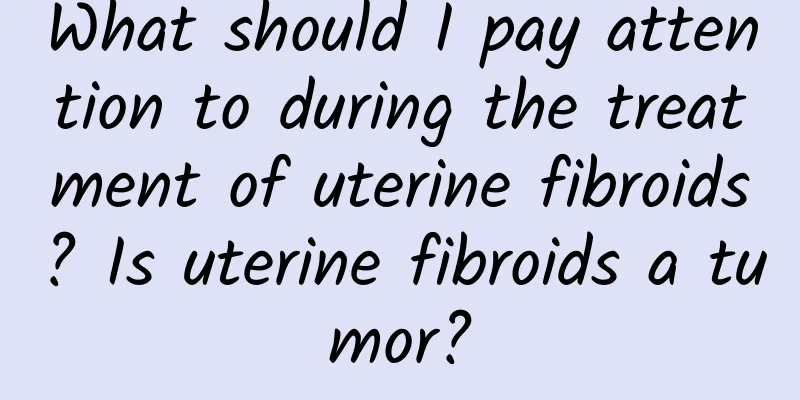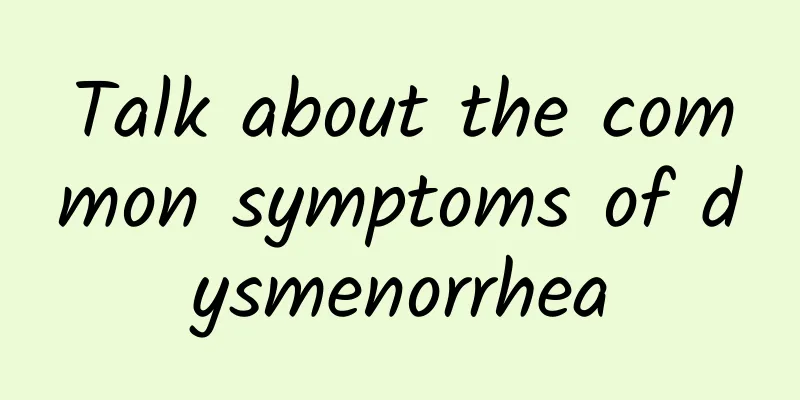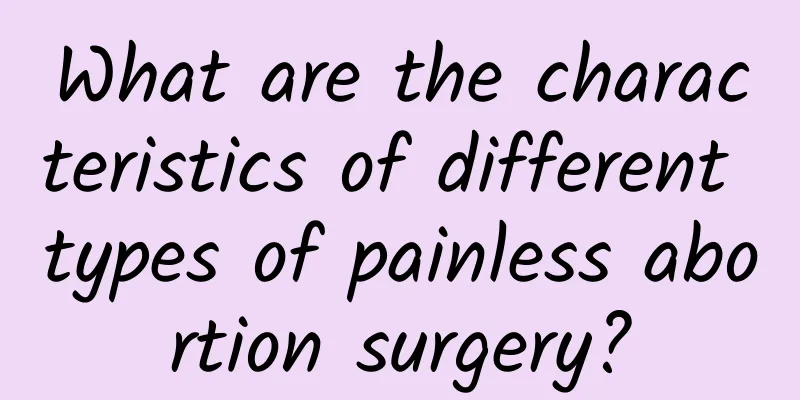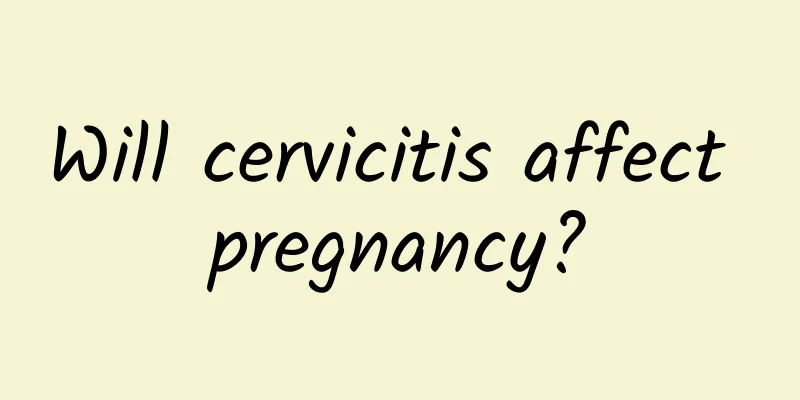What to do if pregnancy is complicated by uterine fibroids? How to deal with pregnancy complicated by uterine fibroids
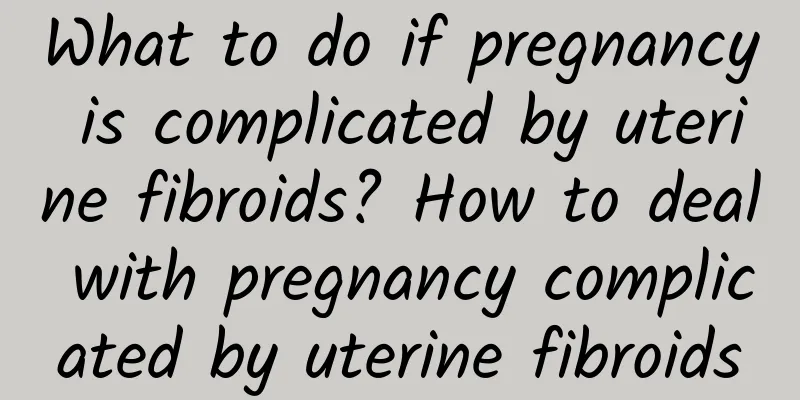
|
Treatment of uterine fibroids in early pregnancy: Intervention of uterine fibroids in early pregnancy is prone to cause miscarriage, so it can wait until the second trimester. If the fibroids are large, the chance of complications of continuing the pregnancy is estimated to be greater. If the patient requires an artificial abortion, the pregnancy can be terminated first, the fibroids can be removed in the short term, and an artificial abortion can also be performed at the same time. If uterine fibroids are discovered after pregnancy, treatment should be based on factors such as the month of pregnancy, fibroid size, and clinical manifestations. Treatment of uterine fibroids in early pregnancy: Intervention of uterine fibroids in early pregnancy can easily lead to miscarriage, so it can be treated by waiting until mid-pregnancy. If the fibroids are large, it is estimated that there is a high chance of complications if the pregnancy continues. If the patient requires an artificial abortion, the pregnancy can be terminated first, and myomectomy can be performed in the short term, or myomectomy can be performed at the same time as an artificial abortion. Treatment of uterine fibroids during the second trimester of pregnancy: 1. For patients with fibroids less than 6 cm in diameter and without symptoms, regular prenatal check-ups should be performed to note whether the fibroids have red degeneration. Most pregnant women can give birth vaginally without special treatment. 2. The diameter of the fibroid is greater than 6 cm. As the uterus grows, the fibroid may continue to grow, and large fibroids are prone to reddening, stimulating uterine contractions or peritoneal irritation symptoms. At this time, obstetricians only recommend bed rest and specialist treatment with analgesics. Surgery for uterine fibroids is rarely recommended during pregnancy, and myomectomy can only be performed when necessary. 3. Treatment of uterine fibroids in late pregnancy: Small fibroids cannot be treated. If the diameter of the fibroid is larger than 8cm but there are no symptoms, you can wait until full-term cesarean section and perform uterine fibroid surgery at the same time. Due to large uterine fibroids, not only may uterine contraction, abnormal production and delayed labor be affected, but the possibility of postpartum placental retention, postpartum hemorrhage and postpartum infection is greater than that of normal pregnant women. In some cases, the uterus may also be forced to be removed due to postpartum hemorrhage or postpartum infection. Therefore, the method of delivery should be cesarean section, and myomectomy should be performed at the same time as cesarean section. |
Recommend
How to treat uterine prolapse? What is uterine prolapse?
Uterine prolapse is a disease in which the uterus...
Can an ectopic pregnancy be detected with a pregnancy test stick?
It is possible to detect an ectopic pregnancy usi...
What are the causes of endometrial tuberculosis?
Endometrial tuberculosis not only threatens women...
How to develop a peach butt? 4 tips to create sexy buttocks
Beautiful breasts are common, but beautiful butto...
What are the common causes of uterine fibroids?
"What are the causes of uterine fibroids?&qu...
What causes uterine fibroids and how to treat them
Uterine fibroids are common benign tumors in wome...
Causes of ectopic pregnancy that need attention
Ectopic pregnancy is a common gynecological acute...
The difference between adnexitis and pelvic inflammatory disease
Adnexitis and pelvic inflammatory disease are two...
How to deal with light menstrual flow and pain
How to deal with scanty and painful menstruation?...
How much does it cost to treat congenital absence of vagina?
How much does it cost to treat congenital absence...
Introduction to the examination method of menopause
Menopause is an indispensable thing for women. Wh...
Does pelvic effusion cause dysmenorrhea? Are there many symptoms?
There are many hazards of pelvic effusion. We sho...
Eat this way to fight cancer, nourish and strengthen your body! Nutritionist demonstrates how to make "Mushroom Chicken Soup" for lunch to replenish nutrition and energy
Delicious and rich soups not only have rich and d...
What causes adnexitis in women?
Adnexitis mainly refers to the inflammation of th...
How to care during the treatment of cervical warts
Nowadays people are under great pressure in life,...

